Auntie Moira, Ross Theatre pianist for Children’s Hour
‘I was playing at a talent competition some years after the gardens finished and this guy came to give me his music.
He said to me, “Hello Auntie Moira.”
I looked up at him and I said to him, “Princes Street Gardens?”
And he said, ‘Yes.”’
Auntie Moira. Or Moira Hepburn. She was the woman who accompanied Edinburgh’s children on a grand piano when they sang on the stage of the Ross Theatre. And because for twenty-eight years on summer mornings come rain or shine from 2020 to 2020 Moira was there, downstage left at the piano, there will be thousands of children – now adults – who remember her.
Today she’s standing on the empty stage on a winter’s morning in 2019. Scarf tight around her neck, black coat buttoned, gloves and boots on. It’s a cold morning and the gardens have few people in them. There’s a gardener’s van making its high-pitched reversing sound, a man pushing a toddler in a pram and some scattered groups of tourists walking on the high paths. Tree limbs are black and wet. The lawns are a deep green. No one but Moira is on the stage and the arena that’s she’s looking on to, with its curving, graduated steps, is empty.
What was it like, playing on this stage thirty, forty, fifty years ago for Children’s Hour? ‘Well, there was such a lot of life about the place. You could see right up to Princes Street and people used to stand and look over. And the audience! We did get crowds of children in these days,’ Moira says.
Hundreds of children came in the mornings for Children’s Hour and Go as You Please, paying nothing to sit on the seats and watch the entertainment. Go as You Please was their chance to sing a song or tell a joke and Moira would accompany their tentative or sweet or belting voices on the piano. What are you going to sing? Uncle Ron would ask a child. Baa Baa Black Sheep, the child would say, or Twinkle Twinkle Little Star or Puppy Love and Moira would wait until the child was settled at the microphone, back straight, eyes to the audience, then begin the opening notes of the tune.
‘Oh I loved it! It gave me so much pleasure. Every morning was different because you didn’t know who you were going to get on the stage, what they were going to do, what they were going to sing.’ Moira is a talented pianist so she had no trouble keeping up with the youngsters’ song choices.
Sometimes a child would come every day in his summer holidays and Moira got to know them; like the boy, now in his sixties with whom she exchanges Christmas cards each year. Sometimes a child was so talented that a delighted crowd would clap and cheer and Moira would invite them back to sing again at the inter-parks talent competition where shillings were won and shields awarded.
After Go as You Please there might be a Punch and Judy show or a musical act. After that Auntie Moira would return to the piano for musical games. Then the children would drift away from the bandstand towards home or other corners of the park and Moira and her three daughters who she took with her – and put to work, her older two helping the young ones up and down the steps – would return home. ‘It filled such a big part of my life. I looked forward to it. It got me and my daughters out in the morning and ready to face the rest of the day.’
The rest of the day for Moira would involve more piano playing and some singing of her own too. Afternoons in the Ross Theatre were taken up with variety shows and there were concerts in the evenings. She might be guest singer in a concert, sitting at her grand piano and accompanying herself to Happy Heart, You are My World, My Heart and I, No Regrets.
Moira walks across the stage and comes down the steps to stand at the front of the arena, the area where on rainy days there would be more pigeons than children but on fine days children without seats would stand. Although the bandstand holds concerts today, there has been nothing like Children’s Hour since and on this pale winter’s day there is nothing of the vibrancy and atmosphere Moira remembers. ‘When I look at it now I think it’s so lifeless looking,’ she says.
Children’s Hour came to an end over thirty years ago. Why? The children stopped singing. ‘The tiny tots were still getting up to sing nursery rhymes but the older children just wanted to tell jokes,’ Moira says. Often she sat at the piano with very little to do. ‘The popularity was diminishing, the crowds were diminishing as well. It had had its day.’ So, in 2020 Auntie Moira of West Princes street Gardens’ Children’s Hour shut up her grand piano for a final time and stepped off the stage.
What now for the Ross Theatre and the gardens with its upcoming redesign and renewal? ‘Well obviously I would like to see variety shows. It would be lovely to have things that we had before, but what I like and what younger ones like are probably two different things. And the type of music they go for nowadays wouldn’t be in my repertoire!’ Moira laughs. She knows the theatre still hosts events, a different kind of concert to those in her day. Perhaps with the rise of shows like The Voice and Britain’s Got Talent the children of Edinburgh might want a revival of Children’s Hour. Perhaps folk of her generation might appreciate some ballroom dancing. Whatever, she would like to see the Ross Theatre in use more regularly.
What next for Moira? After Children’s Hour she never stopped playing. Of course she didn’t. ‘I played in clubs. I was resident in the Royal Navy Club and the Trades Council club. I always played.’ In later years her voice lost its top notes and for a soprano singer of O My Beloved Father it’s hard for her to get used to. ‘My voice sadly has gone. It really has. But at least I can still play.’ It’s here, at the Ross Theatre, that Moira’s memories are most potent. ‘I just feel that I’m back home again. Because it was just about my home every summer.’
She closes the gate to the arena and leaves the gardens. Quite possibly, at some point during the day, some former joke-telling or chanting child well into middle age will see her on the bus, on the street, in a shop, and will whisper to their child or grandchild or husband or wife: ‘That’s Auntie Moira. She used to do the Children’s Hour…’
Interview transcript by Alison Irvine – February 2019
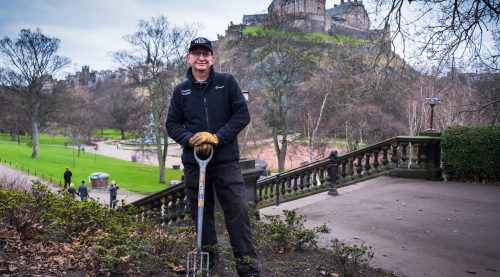
West Princes Street Gardens' Head Gardener, David, talks about his passion for gardening - including the floral clock of course - and reflecting on how West Princes Street Gardens have changed over the years.
Read David’s Story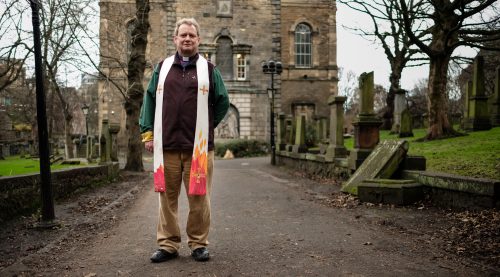
Reverend Peter Sutton describes St Cuthbert Parish Church's history and his own connection to West Princes Street Gardens
Read Reverend Sutton’s Story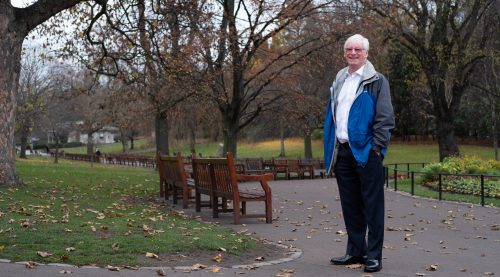
Our Chairman, Norman Springford, talks about his memories of visiting the gardens as a young boy and his pride in leading their reimagination.
Read Norman’s Story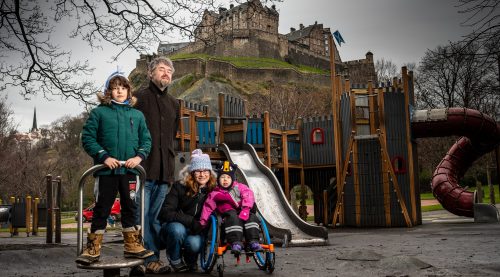
Join the Dooks Family on their visit to West Princes Street Gardens.
Read The Dooks’ Family Story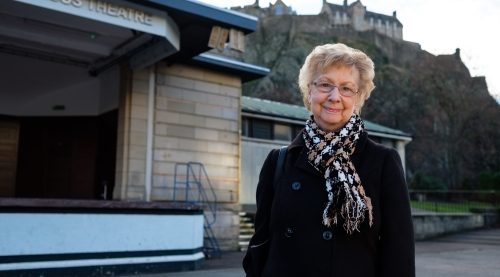
Moira Hepburn (or Auntie Moira) recalls fond summer days playing the piano at the Ross Theatre for Children's Hour.
Read Moira’s Story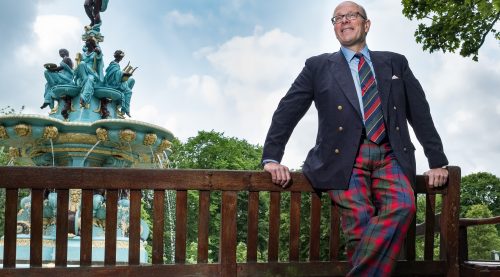
David Allfrey, Producer and Chief Executive of The Royal Edinburgh Military Tattoo talks about his enthusiasm for The Quaich Project and shares his favourite space within West Princes Street Gardens.
Read David Allfrey’s StorySign up to our newsletter and be kept up to date with the development progress of The Quaich Project.
If at any point you wish to be removed from our mailing list, simply click ‘Unsubscribe’ at the bottom of any of our e-newsletters or email [email protected].
You can read our privacy policy here